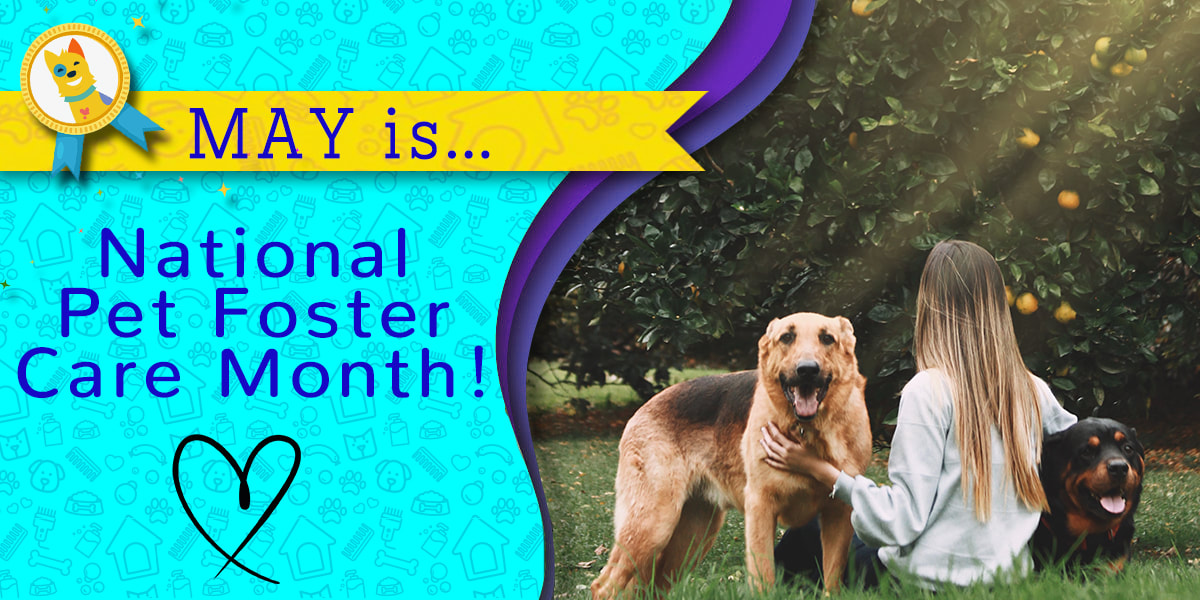Sharing a home is sharing the love!Shelters and rescues would love to house every homeless animal, but unfortunately, that is just not possible due to a lack of space and resources. Animals that would otherwise be euthanized can be saved by those who are willing to take them into their homes, even if its temporary. Foster homes are also a great option for animals with special needs, nursing mothers and babies, and animals that need a quiet space to heal from injury, trauma, or illness. Fostering is an amazing and rewarding experience. You can change an animals life for the better by bringing them into your home and caring for them. Why foster?There are a myriad of reasons for animals in need of foster care, and each situation is different depending on the animal. Some animals are too young to be spayed or neutered so they cannot yet be adopted out. Kittens and puppies need to be at least 8 weeks old and weigh at least two pounds before undergoing that surgery. This is another reason foster care is so crucial. Foster homes are the most comfortable, hygienic, and safe place for young animals still nursing from their mothers, or worse without their mothers. The babies are vulnerable and still developing, and cannot control their body temperatures on their own, so they need to be strictly monitored. Additionally, animals that are injured or sick need a warm, quiet place to recover. Foster homes can provide a nurturing environment that shelters just cannot. Animals can find a calm safe space to heal without the stress of many other animals being present. How does foster care work?Every shelter and foster care program has its own set of policies and procedures when it comes to foster care. Most likely, the foster care coordinator will talk will help you decide what type of pet will be most compatible with your lifestyle and home. Most foster programs have requirements such as age and living in close proximity to the shelter. You will then be asked to fill out an application, possibly be asked for a background check, and attend foster care training. Some foster programs will also want to conduct a home visit before accepting your application. They will require that a foster parent’s current pets be up to date on all required vaccinations before bringing a foster pet into the home. Communicable diseases from the shelter can easily be brought into your home, so it’s important to protect your current pets from any avoidable illness. Additionally, you may consider preparing a separate space for an incoming foster if they are nervous or anxious. Being exposed to a lot of new stimuli can overstimulate or cause them to be anxious, so a spot that they feel is their own is helpful when acclimating to a new environment. A new animal inside the home can also bring about stress to your existing pets. They may become territorial or anxious. Look for signs of distress, including excessive panting, pulling their own fur out, hiding, and especially refusing to eat. It’s important to be realistic about the amount of time and care you are willing and able to provide. Some animals in foster care need help with problematic behaviors such as pulling on leash, barking, going potty inside the house, and separation anxiety. Correcting problem behaviors can be frustrating and time consuming, but it is so rewarding to see progress in an animals behavior. You also may be asked to assist with their medical needs or rehabilitation. This may include administering medications when needed, or applying topical medications. Some sick or injured animals may suffer from incontinence and need support and tenderness in these situations. I would love to foster! Now what?If you have made the decision to foster and have been approved, be sure to prepare your home for the new arrival. Most shelters will provide food, medications, kennels, toys, and other basic supplies that will help you get going. They will also likely put you in contact with the veterinarian that they see regularly that can provide assistance in the case of an emergency, with no cost to you. Be sure to check with the shelter or rescue you are fostering for to connect you with all of these resources. Rewards of fostering...There is no set time period for how long an animal will be in your care, but often you will return an animal to the shelter once its gained enough weight as a younger animal, when the animal has fully recovered from injury, or when they have been successfully adopted. Additionally, if an animal with problem behavior is being fostered, they will be ready for adoption once the problem behavior has been corrected and an animal has been socialized with other animals or humans. Letting go of a foster animal is an incredibly emotional experience. However, the reward of seeing an animal happy in a forever home far outweighs the heartache of separation from the animal. Being a foster parent to animals is critical to their success in a forever home, and it feels incredible to see a once struggling animal thrive. Whether it's your foster pup, or your own pup, we would love to care for your grooming needs! |
Lourdes MassengillI love grooming and dogs are my life :-) Archives
November 2021
|
|
|
We offer 10% off every day for booking at least 6 weeks early,
as well as 10% off for seniors and military!
Call us today!
407-332-4400
© Copyright 2022 D'tails Pet Boutique & Spa. All Rights Reserved.







 RSS Feed
RSS Feed